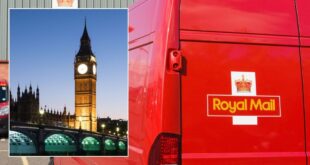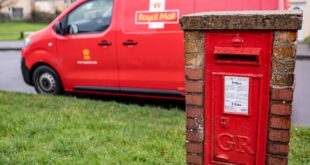It said the move would save 30,000 tonnes of carbon dioxide equivalent per year and help meet the growing demand for next day deliveries.
Using fleet vehicles instead of planes would also mean it can move more during busy periods as they are less likely to be delayed by bad weather and are not as capacity-constrained.
Royal Mail said it would end 18 domestic flights, which would help it meets its target of being net zero by 2040.
The first wave of 11 flights made their final journeys last month, with a further three flights stopping on July 20 and then four early next year.
The only domestic flights that will remain are those that are essential for the postal company to fulfil its universal service obligation to provide a next day delivery service to all 32 million addresses in the UK.
Alistair Cochrane, COO at Royal Mail, said: “The removal of half of our domestic flights is our biggest step yet in reducing our use of air to transport mail and a major step towards our net zero by 2040 target.
“Not only will this reduce carbon emissions, transporting more mail by road will also help us provide a more reliable service for customers and increase our capacity to meet the increasing demand for next day parcel deliveries.”
Royal Mail’s HGV fleet is partly run on hydrotreated vegetable oil, a renewable alternative to diesel that reduces up to 90% of direct greenhouse gas emissions.
The company’s red vans are also the UK’s largest electric vehicle delivery fleet, with around 5,000 rolled out.
Source link


